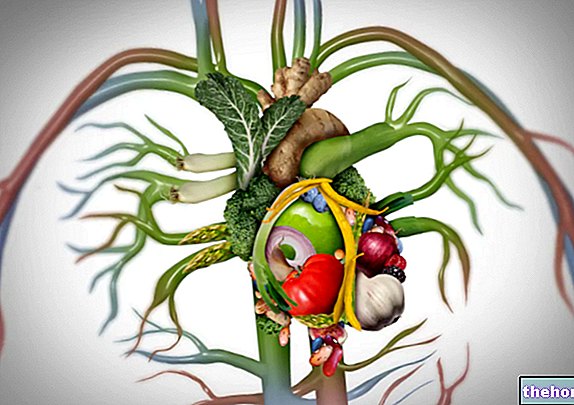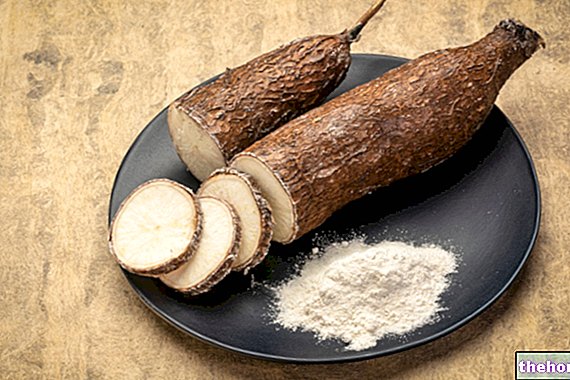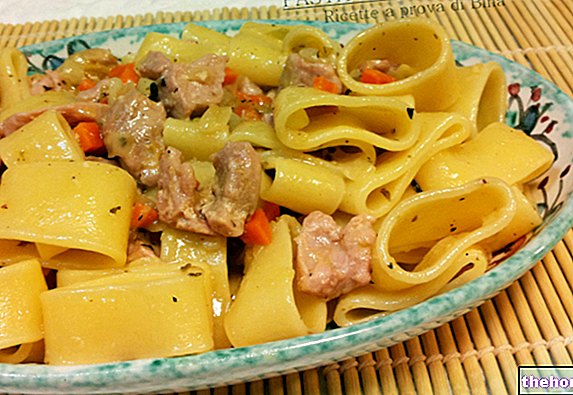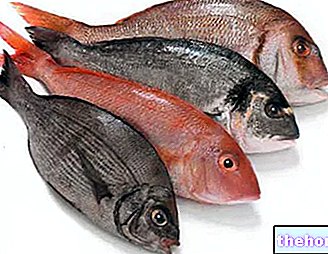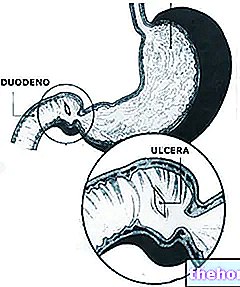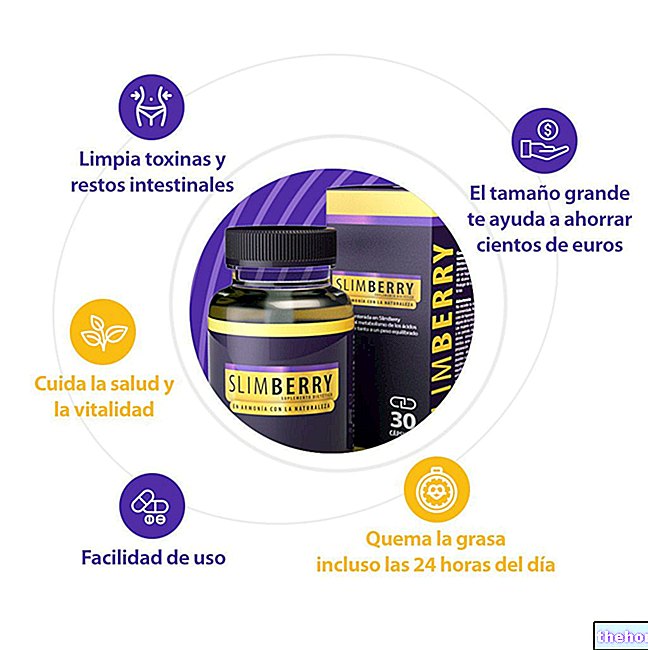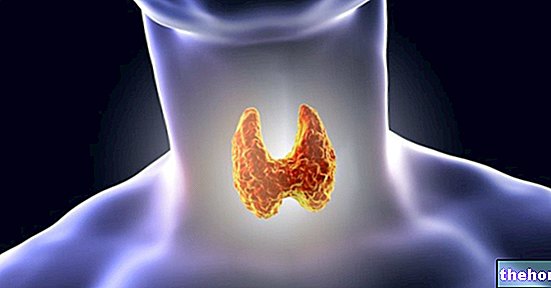
During sleep, numerous processes useful for "central nervous recharging" and "physical recovery" are activated and facilitated; despite being characterized by immobility, reduced interaction with the environment and sensory-motor isolation, sleep is still responsible for the development of numerous brain processes.
Broadly speaking, it is possible to define that sleep reduces cerebral metabolism during the NREM phase and increases it during the REM phase; this alternation of the two phases determines an oscillation of hyper and hypo central activation in constant evolution and influenced by numerous neuro-endocrine factors. The hormonal axis that regulates sleep-wakefulness is also determined by: general stress, activities carried out in the evening hours, evening nutrition and other components of a psychological nature.
, and the nutrients contained in them interfere (in a more or less important way) in hormonal production and endocrine regulation; moreover, the excessive effort of the digestive system significantly penalizes the activation and the quality of sleep itself. From a biochemical point of view, it has been amply demonstrated that some nutritional molecules determine the secretion of mediators favorable to sleep, while others perform the opposite function; among the hormones that promote sleep we mention:
- Melatonin
- Serotonin
On the contrary, among the molecules that make it more difficult we remember:
- Dopamine
- Adrenaline
- Noradrenaline
Having said that, it is obvious that pro-hypnic foods (ie those that promote sleep) mainly bring precursor molecules and / or favor the synthesis of melatonin and serotonin. Fundamental groups:
- Foods containing tryptophan, an essential amino acid which in turn stimulates the production of melatonin and serotonin; it is contained in:
- Milk and cheese
- Meat and fish
- Egg
- Beans, chickpeas, broad beans, lentils, peas, peanuts
- Hazelnuts, almonds
- Whole wheat
- Banana, avocado, pineapple
- Spinach
- Foods containing complex carbohydrates, polymeric macronutrients that stimulate the pancreas to produce insulin, a hormone that favors the availability of tryptophan; complex carbohydrates are mainly contained in cereals and derivatives, potatoes and chestnuts.
- Foods that contain good quantities of Thiamine (vitamin B1, mainly contained in cereals and legumes) and Pyridoxine (vitamin B6, almost ubiquitous) as essential components for the biosynthesis of serotonin. NB: SIMPLE carbohydrates exert a negative effect on the bioavailability of Pyridoxine.
- Also INDIRECTLY involved are foods that contain calcium and magnesium, the deficiency of which negatively affects sleep cycles.
Let's start by specifying that:
- tryptophan, pyridoxine and calcium, although present in cow's milk (the most consumed) could also be taken by consuming numerous foods; among other things, if we want to be precise, drinking cow's milk in the evening does NOT introduce significant quantities of thiamine, magnesium and complex carbohydrates, which are useful for promoting a better quality of sleep.
Having said that, it seems obvious that the habit of taking milk in the evening in order to improve the quality of sleep (or even prevent insomnia) has NO biochemical basis; in other words, from a nutritional point of view, a glass of milk before going to sleep has a "hypnotic efficacy similar to or even lower than that of a dish of" beans all ". It is also true that psychology probably plays a decisive role; some specialists attribute a regressive potential to warm milk before sleep that evokes infantile sensations and emotions responsible for a profound psychic relaxation ... which has nothing to do with tryptophan.
In conclusion, drinking milk in the evening does NOT directly promote the improvement of sleep quality, or rather, no more than other foods; an obvious dispute could be that: drinking hot milk, as opposed to eating many other foods, does not overload digestion ... False! Cow's milk, despite being a liquid food, certainly does not stand out for its easy digestibility. In fact, taking lactose tolerance for granted (and avoiding the formation of lactulose with heat), the protein content of cow's milk determines a sort of REBOUND effect on the acidity of the stomach. It favors a transient increase in gastric pH following the DILUTION of digestive juices but later, thanks to the proteins contained in it, it decisively solicits the production of pepsinogen and hydrochloric acid; obviously, all this happens during sleep, when both stomach acid and the tendency to gastro reflux -esophageal (facilitated by the supine position) are not perceived. Therefore, although it may represent an "indispensable habit, it is possible to say with certainty that drinking milk before sleep is completely NOT RECOMMENDABLE for gastro-sensitive subjects or those suffering from other disorders of the upper digestive tract.
digestion of the proteins contained in cow's milk would be responsible for the maintenance of numerous diseases of the central nervous system; the partial degradation of the aforementioned proteins would determine the entry (through the intestinal mucosa) of peptides composed of 7-15 amino acids called "opioids" or "caseo-morphins". It seems that these macromolecules (if present in significant quantities) are able to overcome EVEN the blood-brain barrier to interact with some opioid receptors of the central nervous system; through this mechanism, caseo-morphines would hinder the uptake processes of melatonin and serotonin, and would cause neuro-psychiatric modifications such as addiction and behavioral alterations. these results [Ledochowski 1998 - Lecks 1986 - Kaplan 1989 - Kahn 1985 - Kahn 1988 - Kahn 1989 - Hanninen 1999], it would be possible to define that drinking milk before sleep, in addition to not conferring any benefit, could lead to disturbances in sleep cycles - alarm clock.Readers don't take this research as "gold standard" or the discovery of the century; remember that the amino acids contained in milk proteins are the same nutrients contained in all foods; moreover, how is it possible to determine whether these caseo-morphins actually derive from the intestinal lumen and were not intermediate metabolites of some other physical or pathological process? Was the intestinal mucosa of the research samples intact? What is the age of the studied group (it is known that the intestinal permeability of children is much higher than the adult)? What underlying neuro-psychiatric conditions related to the subjects? These are all questions whose answers would determine the reliability or otherwise of the results mentioned above; personally, I suggest an accurate reading of the works and an independent evaluation of the conclusions reported by the authors.
Milk, Dairy Products and Cheeses Asiago Brie Burrata Caciocavallo Rennet Camembert Cheddar Milk Cream Crescenza Emmental Feta Milk Flakes Fontina Herbal Cheeses Lean Cheeses Cheeses rich in calcium Gorgonzola Gouda Grana Padano Gruyere Kéfalair Adapted milk Artificial milk Condensed milk Asphyxiated milk Goat's milk Sheep's milk Rice milk Soy milk Powdered milk and concentrated milk Skimmed and semi-skimmed milk Lactose-free milk Milk Vegetable milk Dairy products Lerdammer Mascarpone Montasio Buffalo mozzarella Mozzarella Whipped cream Cooking cream Fresh cream Parmigiano Reggiano Pecorino Philadelphia Primo Sale Provolone Ricotta Robiola Roquefort Scamorza Sottilette Squacquerone Taleggio Tomino Yogurt OTHER ARTICLES MILK AND DERIVATIVES Categories Alcoholic foods Meat Cereals and derivatives Sweeteners Sweets Offal Fruit Dried fruit Milk and derivatives Legumes Oils and fats Fish and fishery products Cold cuts S pezie Vegetables Health recipes Appetizers Bread, Pizza and Brioche First courses Second courses Vegetables and Salads Sweets and Desserts Ice creams and sorbets Syrups, liqueurs and grappa Basic preparations ---- In the kitchen with leftovers Carnival recipes Christmas recipes Light diet recipes Women's Day, Mum, Dad Recipes Functional Recipes International Recipes Easter Recipes Recipes for Celiacs Recipes for Diabetics Recipes for Holidays Recipes for Valentine's Day Recipes for Vegetarians Protein Recipes Regional Recipes Vegan Recipes

